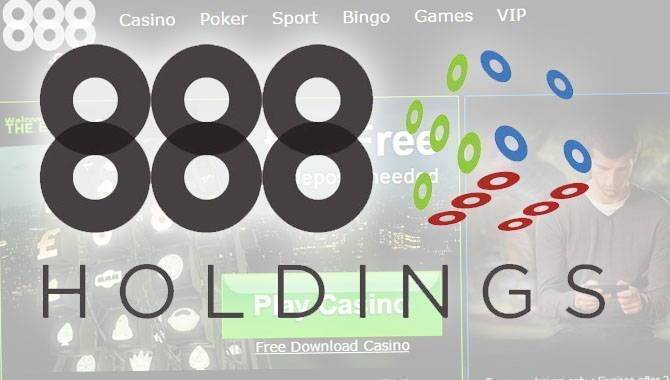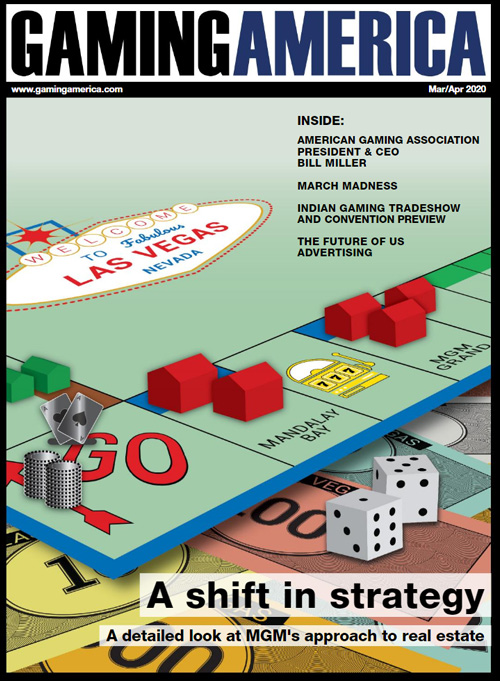
What is 888 Holdings’ approach to US political betting markets?
Traditionally, you need to bear a few things in mind. Back in Europe, which has a longer history of sports betting, political wagering is a prop bet or a novelty bet. In the UK, we’ve been giving Royal Family and Parliamentary betting, but they’re fringe. In the US, it is different because the Presidential Election is much bigger than any parliamentary event in Europe, so it garners a lot of interest. But there’s also the regulatory implications.
By construction, any event offered must be approved in advance by the Department of Gaming Enforcement and they’re very selective. For what they allow betting on, I would guess they won’t be allowing much betting on political events due to the areas of consideration. Also, betting is moved a lot by live events and dynamic content. At the end of the day, the Democratic Convention and the Presidential Election don’t generate a lot of events or contests.
If anything, it’s more of a novelty or a PR-related bet. I don’t see this becoming a material revenue generator, especially given the regulatory implications here. I also don’t think it’s right to drive bettors to bet on political events.
What, if any, precedent exists for US political betting?
Sports betting had only been legal in Las Vegas the past couple decades and it’s only been legal elsewhere since the overturning of PASPA in May 2018, so there hasn’t been a major election campaign since sports betting was legalized. This will be the first. From what I see so far, I don’t see much action on it. I think as we draw near to November, I have seen some requests come in to allow for betting on these types of events. When you offer these bets, you’re essentially taking a political stand or you may find yourself taking a political stand. So I’m not sure if it’s good for business.
How do operators generate odds for this type of market?
To the best of my knowledge, most sportsbook operators including ours don’t hold the proficiency numbers. We have very qualified traders that know how to locate a sporting bet and derive a price appropriately. Looking at other events, it’s like trying to offer bets on the weather. Because these are novelty bets, if you are going to offer them, you should probably reduce the risk by limiting the amount of bets or the size of bets allowed; or offering up what is equivalent to a promotional activity and cap it as such.
I don’t know of any sportsbook operator that has a specific proficiency in their pricing in political campaigns. I think it’s a whole other section. Trying to price the Iowa outcome correctly – it’s not our core business. If anything, it should be priced on commercial consideration rather than actual content. You can also attract the wrong type of attention if you’re trying to do that.
What type of events or markets does political betting best compare to?
These bets naturally create attention, that’s the reason why operators do it. It’s a singular event like the Super Bowl. At the end of the day, the Super Bowl itself is an event that attracts a lot of attention and for a lot of new players that will be their first bet. As an event itself, it’s just one game that’s three hours long. We always prefer a bigger selection of events on top of just one game, no matter how popular it may be.
Its outcome can also drive you to the red significantly. It’s just one event, so the Election mainly will create a lot of attraction from the marketing perspective; and then you think about how you can cross-sell the people making a bet on the Presidential campaign into actual sports betting. The closest example I have is horseracing in the UK, where the Grand National traditionally attracts a type of recreational bettor.
Crossing over into classical sports betting is harder. Here, it also carries the possibility of all sorts of political backlash. From 888’s perspective, I would view this very carefully if I’d like to offer these types of markets, because the direct commercial benefit they bring might be quite limited as opposed to the risk you’ll be bearing from a financial and a PR perspective.
Based on what you are saying, is it fair to conclude there’s an inherent risk in offering political betting?
Yes and I’m saying yes from a dual perspective. Predicting a sports betting event or any event outcome has been predicated on a very binary result. Either it happened or not. Your team lost or not. You were over or under. Here it can become a lot more complicated. It’s sort of a dynamic parlay bet and, at the end of an outcome, look at the latest Democratic Party Iowa Caucus results. We weren’t sure who won right after.
These events are quite tricky to quantify and also to put into terms that will be acceptable for both regulators and players. It's novelty. You need to take into consideration that it’s much less predictable; and if you can’t translate that into sports betting and gaming success, you’re running the risk of being considered an outlier.
I see this as more in the field of the challenger brand with small events in the marketplace, where people try to create some traction and attention around them. Are they willing to live the risk? 888 is a global brand operating in 13 jurisdictions and holds a reputation as a gaming operator, so I wouldn’t want to associate myself with any political fallout that may be the result of something like this.

